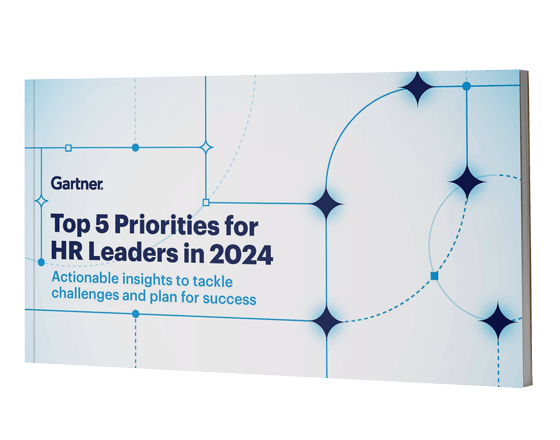How to build a business case for equality and diversity
The values of equality and diversity (E&D) should be an essential value and common practice of any business. It is not a voluntary decision that companies can choose to opt in or out of. Despite this, many organisations choose to see it as an optional addition to their policies and procedures, ignoring the importance of E&D within the corporate culture and its future progression. Because of this, it can be tough to build a business case for diversity that is accepted and implemented by those at the top. If the decision-makers don’t understand just how valuable it can be in terms of driving the company’s success, even the best-made cases can fall by the wayside.
Management may see avoiding the introduction of E&D as a way of reducing additional costs; in reality, the opposite is true. Businesses that ignore equality and diversity do so at their peril, finding employee attrition rates rising, staff disengaging, innovation falling behind that of competitors and, in some cases, legal costs escalating. The best business cases prove that E&D helps attract high-quality talent that may have otherwise been ignored, creating an inclusive and diverse working environment and boosting performance.
Managers need to understand why diversity and inclusion in the workplace are important and how forward-looking organisations can adapt. If you have been tasked with building a powerful business case for equality and diversity let’s look at some of the important facets that need to be included:
What is equality and diversity? The values of equality and diversity should be explained to all employees, showcasing how these are necessary to create a workplace that is inclusive and fair. In doing so, discrimination is eliminated and the company has a workforce that is diverse, welcoming people irrespective of their age, gender, ethnicity, sexual orientation, religion or physical disabilities. Each person should feel equally valued and appreciated.
Adhering to the laws on equality and discrimination. Those organisations that work in line with E&D will ensure that they adhere to the laws on equality and discrimination. Failure to do so can result in damage to reputation and expensive legal cases. Policies need to clarify how staff should behave and what to do if they have a grievance. According to the Centre of Economics and Business Research, discrimination has been shown to cost the UK economy £127bn per annum in terms of reduced productivity. Compare this to an increase in revenue of approximately 35% for those organisations promoting ethnic diversity, as highlighted in the McKinsey Diversity Database, and you can see why equality and diversity are so important.
Making the business more appealing. Whether your business is B2B or B2C, target markets are becoming more diverse. The organisation can attract more customers by promoting values of equality and diversity. In addition, by having an inclusive workforce, your internal culture is going to be more representative of that of a wider population, enabling you to delve into a variety of different sectors and social groups. Marketing should reflect this, as should all communications, enforcing the belief that a diverse organisation is more understanding and forward-thinking. But it’s pointless incorporating E&D into the company’s values if the principles are not adhered to; it must be a part of the corporate culture with management walking the talk.
Attracting the best talent. Having a reputation for being a company that promotes E&D and has a diversity recruitment strategy in place acts like a magnet, attracting the cream of the crop when it comes to job candidates. Barriers are removed and people from diverse backgrounds will apply for positions they would have otherwise ignored. Unconscious bias is removed and people are selected according to the value they bring, rather than the university they attended. Recruitment processes will be fairer and the culture of inclusion should permeate the whole organisation. The more diverse your company, the more attractive it becomes. 50% of millennials aim for diverse companies when seeking a new position (Institute for Public Relations). Remember that any plans your company makes to attract people from diverse backgrounds should be mirrored with a plan to keep them. Failure to do this will result in wasted efforts and costs.
Reducing attrition in the workplace. Employees will enjoy being at work, looking forward to operating within a workplace culture that is morale-building and welcoming. Staff turnover will reduce and productivity will be on the up. Don’t think of this as just something that HR is responsible for – fairness and equality must be reflected in all company policies and behaviour. E&D is a process that must include everyone, no matter their role. Hiring a diverse workforce can only be sustained if processes are put in place to make each employee feel valued and the recruitment process can be adjusted to meet the needs of a variety of individuals. Failing to do this will increase rates of attrition rather than reduce them. The company’s diversity and inclusion programme should be embedded in daily operations and the culture of the operation. Things such as bullying, harassment and vindictiveness should be removed and dealt with with zero tolerance and using strict policies. These should be documented and regularly enforced with workplace training. Allowing any form of discrimination to seep into the working environment is toxic and must be avoided at all costs if an air of equality and diversity is to persist.
Clarify the benefits of E&D. When building a business case for diversity it is essential to outline the benefits that the company will enjoy as a result of making the changes. Research has shown that the more diverse the company, the more innovative it is and therefore profitable. Companies that are more gender diverse are 21% likely to be more successful whilst those that are ethnically diverse can boost financial returns by as much as 35% (McKinsey).
Conclusion
If your business case shows clearly how the organisation can benefit from becoming more diverse and promoting equality, decision-makers will find it easier to assess the benefits and put a plan in place to change the business culture.
This is where The GC Index is becoming a very important data point for organisations to provide a tangible framework to recognise the impact that everyone can bring to the table. Through the GC People Company programme organisations can be recognised for genuinely valuing all of their people for their diverse contributions to organisational goals and recognises those that value the positive contributions all of their people can bring. Ultimately it’s these organisations that are succeeding in terms of achieving an engaged and empowered workforce and better business performance.
If you’re not already working on building your business case for equality and diversity, you really should be. We understand that it might seem overwhelming and complicated, and that is why our expert GC Index team are on hand to understand your ambitions, advise you on how to increase E&D in your organisation and even help you draw up a business plan that will be impactful and effective in achieving your goals.
Sound like something you could benefit from? Why not get in touch with us by giving us a call or filling out our contact form?



